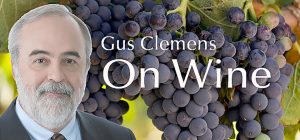Scare headlines: “Drinking any alcohol is a cancer risk.” Well, okay, the question is how much of a risk?
In this discussion, remember the adage popularized by Mark Twain: “Three types of lies. Lies. Damn lies. And statistics.” Stories about cancer risk with alcohol often can be taken with a grain of salt.
No question alcohol can put you at a greater risk of cancer. But how much greater risk? That is where the statistical hanky-panky emerges. A popular reference comes from the Canadian Centre on Substance Use and Addiction’s 2023 Guidance on Alcohol and Health: Final Report. A bottom line: limit consumption to no more than two alcoholic drinks a week.
The devilish detail is the comparison of no-alcohol risk and the risk of some alcohol—usually two glasses of wine a day. Here are the findings:
• The breast cancer risk for no-alcohol females is 17.3 of 100,000 deaths (1.73%). Two-a-day drinkers increase their risk to 22 of 100,000 deaths (2.2%).
• The colorectal cancer risk for no-alcohol people is 9.2 of 100,000 deaths (.92%). Two-a-day drinkers is 11.1 of 100,000 (1.1%).
• The liver cancer risk for no-alcohol people is 3.2 of 100,000 deaths (.32%). Two-a-day drinkers is 3.6 of 100,000 deaths (.36%).
• The oesophagus cancer risk for no-alcohol people is 1.5 of 100,000 deaths (.15%). Two-a-day drinkers is 2.1 of 100,000 deaths (.21%).
The statistical trick is to state increased risk in relative terms, not absolute terms. Breast cancer risk is 17.3 of 100,000 among non-drinkers and 22 of 100,000 for drinkers. The increase in drinkers is 27% measured in relative terms—22 is 27% more than 17.3. In absolute terms, the increase is .47% (17.3 plus .47 equals 22). If a woman drinks two glasses of wine a day, she increases breast cancer risk by less than one-half a percent.
That is the reason the anti-alcohol zealots harp on relative and not absolute numbers. One is alarming but misleading. Two-a-day female wine drinkers do not increase their death rate by 27%. They increase their cancer chances from 17.3 per 100,000 to 22 per 100,000.
No one argues that excessive alcohol does not pose significant health risks. But misleading the public about the risks of moderate consumption is not the way to affect this issue. Go ahead and have that glass of wine with your meal tonight. It is very unlikely to kill you. And the bonhomie you enjoy with that meal has its own benefit of increasing joy and enriching your life, which studies show helps prolong life.
Last round: What do elves use to make sandwiches? Shortbread. Wine time.

